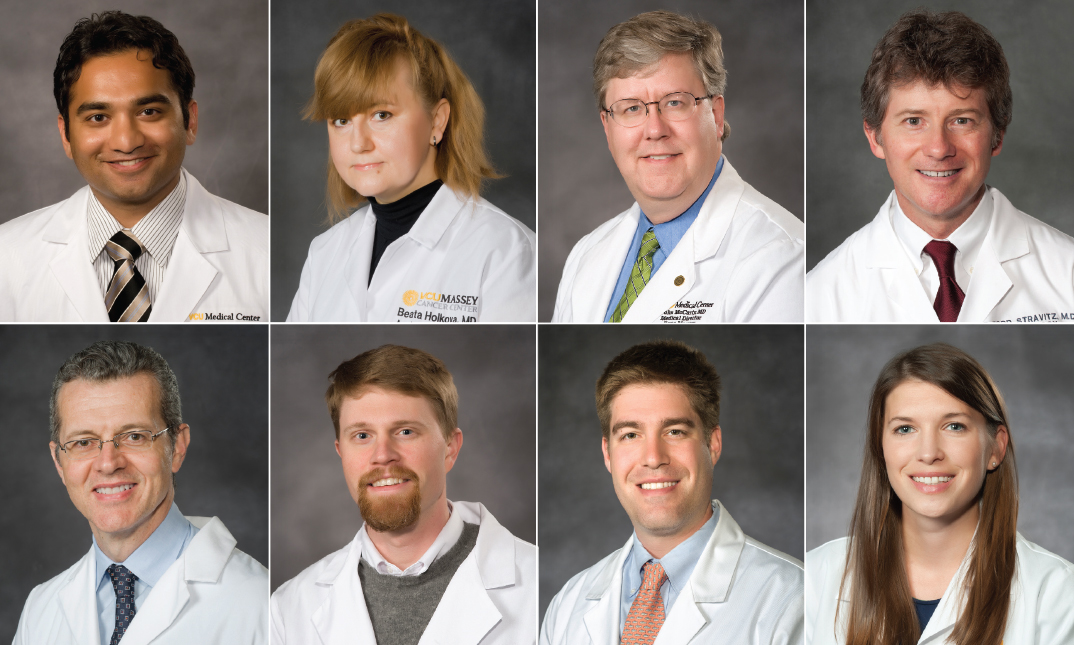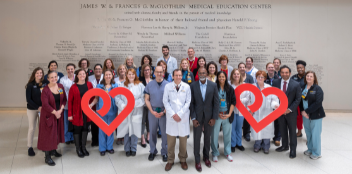VCU Health Offers Program for Amyloidosis
Amyloidosis is a rare, but serious, disease that is often hard to diagnose.

“The symptoms are sometimes vague and they often mimic other conditions like cancer, neuropathic conditions and heart disease,” says Dr. Keyur Shah.
Abnormal proteins can clump together to form amyloid, which can build up in the body’s organs. When the buildup involves the heart, it is called cardiac amyloidosis. Over time, the condition can impair the function of the heart and lead to abnormal heart rhythms and congestive heart failure.
Common symptoms for cardiac amyloidosis include weakness, fatigue, shortness of breath, weight loss and an irregular heart rhythm. To separate it from other cardiac conditions, “diagnosis of amyloidosis often requires an additional clinical clue, such as low voltage on the EKG, an abnormal MRI or diagnosis of other conditions, such as carpal tunnel syndrome, which many patients develop,” he said.
Shah, who has treated these patients for years, became part of the multidisciplinary amyloidosis team two years ago. The team, which is dedicated to seeking the latest in research and evolving therapies for the condition, and assuring the best outcomes and quality of life for patients, also includes physicians who specialize in hematology, gastroenterology and hepatology, nephrology, neurology and palliative care.
“Over the years, as care became more complex, and multiple treatments and clinical trials were evolving, we realized our common interest and started working together,” he said. “I believe we have one of the most comprehensive amyloidosis programs in the region.”
Over time, the condition can impair the function of the heart and lead to abnormal heart rhythms and congestive heart failure.
Diagnosis can include blood and urine testing to help identify the presence of abnormal proteins; genetic testing; and MRI, echocardiogram and nuclear imaging. “Ultimately, the diagnosis is confirmed with a biopsy to identify amyloidosis in the tissue,” said Shah.
Although the disease is rare, VCU Health physicians have seen hundreds of patients with the condition, which comes in three forms:
Light-chain amyloidosis, which begins with excessive production of a protein in the bone marrow and can mimic the symptoms of heart disease. Early identification is important for this rare but aggressive condition.
The more slowly progressing age-related amyloidosis occurs from a protein developed in the liver called transthyretin (TTR). The condition affects up to one in four people over age 80, and primarily men.
Familial amyloidosis is caused by an inherited mutation of the TTR protein. The condition can affect the heart, but more often tis caused by an inherited mutation of the TTR protein. The condition can affect the heart, but more often the central nervous system causing motor weakness, sensitivity to temperature, and in later stages, dysfunction of the gastrointestinal system. In the U.S., familial amyloidosis is especially prevalent in African-Americans, where patients develop heart disease that is often misattributed to hypertension or diabetes.
VCU Health offers a broad spectrum of therapies for all forms of amyloidosis, including clinical trials, contemporary chemotherapy protocols, and bone marrow and solid organ transplants. For select patients with hereditary amyloidosis, a combined heart and liver transplantation may also be an option.
“New imaging technologies have helped identify more and more patients, and have led to earlier diagnosis and treatment,” said Shah. “Amyloidosis has now become a disease that is manageable over a long period of time, with many long-term survivors—whereas, it used to be a terminal disease only a decade ago.”
AT VCU HEALTH, PATIENTS WITH AMYLOIDOSIS BENEFIT FROM THE EXPERTISE OF A MULTIDISCIPLINARY TEAM: TOP: DR. KEYUR B. SHAH, DR. BEATA HOLKOVA, DR. JOHN MCCARTY, AND DR. R. TODD STRAVITZ/ BOTTOM: DR. EGIDIO DEL FABBRO, DR. DANIEL E. CARL, DR. JASON M. KIDD, AND DR. KATHLEEN PEARSON
Back to Spring-2018

